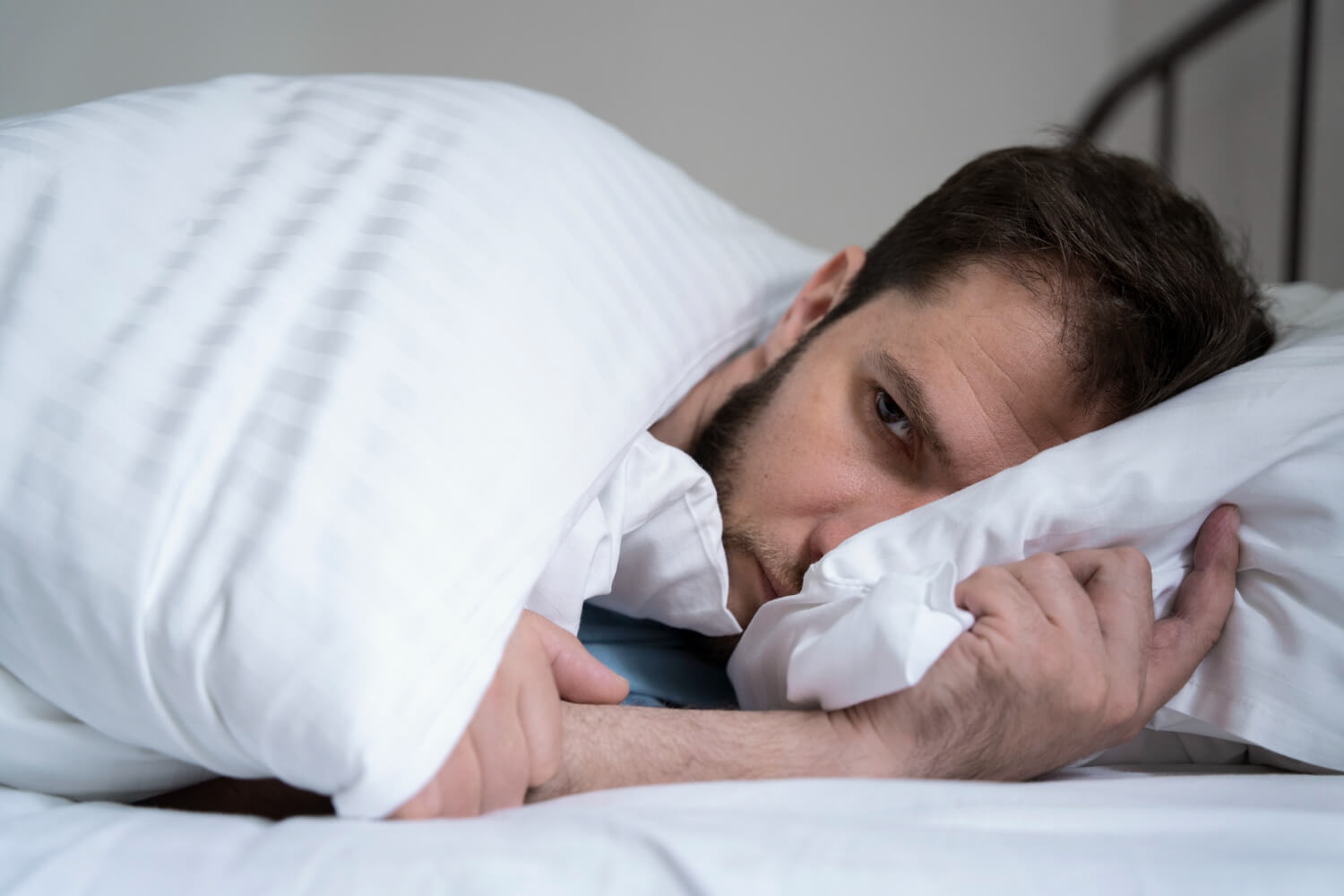Can Lack of Sleep Cause Hair Loss?
We all know sleep is essential for physical and mental health — but did you know that lack of sleep may also affect the health of your hair?
Although poor sleep is not the only reason behind hair loss, it is increasingly recognized as a contributing factor. From disrupting hormonal balance to increasing stress levels, insufficient rest can have a surprisingly powerful effect on the hair growth cycle.
Let’s explore how sleep and hair health are connected, and what you can do to protect your hair if you’re not sleeping well.

The Science Behind Sleep and Hair Growth
Hair grows in cycles, consisting of:
Anagen (growth phase)
Catagen (transition phase)
Telogen (resting and shedding phase)
This cycle is regulated by a variety of factors, including hormones, immune responses, and overall health — all of which are heavily influenced by sleep. When sleep is disrupted, these regulatory systems can fall out of balance, potentially leading to excessive hair shedding or slowed growth.
How Poor Sleep Can Lead to Hair Loss
1. Increased Stress and Cortisol Levels
Sleep deprivation triggers the release of cortisol, also known as the stress hormone. Elevated cortisol levels can:
Interrupt the hair growth cycle
Push hair follicles prematurely into the telogen (shedding) phase
Exacerbate conditions like telogen effluvium, where hair loss is sudden and diffuse
Chronic stress caused by lack of sleep is one of the most common indirect causes of temporary hair thinning.
2. Hormonal Imbalances
Sleep affects the production of key hormones, including melatonin, growth hormone, and thyroid-regulating hormones — all of which play a role in skin and hair health. Disruption in these hormones may lead to:
Weakened hair structure
Delayed hair growth
Follicle miniaturization over time
3. Weakened Immune System
A strong immune system supports healthy hair follicles. When you’re consistently sleep-deprived, your immune system becomes compromised, potentially leading to:
Slower follicle regeneration
Increased scalp inflammation
Autoimmune reactions in individuals predisposed to conditions like alopecia areata
4. Reduced Cellular Repair and Regeneration
Sleep is when the body repairs itself — including skin and hair cells. Inadequate sleep can hinder the natural repair process, resulting in:
Dull, brittle hair
Increased breakage
Slowed regrowth after shedding
Is Sleep-Related Hair Loss Permanent?
In most cases, hair loss related to poor sleep is temporary — especially when caused by stress or hormonal fluctuations. Once sleep patterns are restored and the underlying cause is addressed, hair typically begins to grow back within a few months.
However, prolonged and chronic sleep deprivation may contribute to long-term thinning, especially when combined with other risk factors like genetics, poor diet, or scalp conditions.
Tips to Improve Sleep and Support Hair Health
To minimize the impact of sleep on your hair, consider the following steps:
Aim for 7–9 hours of sleep each night, ideally at consistent times
Limit screen time before bed to reduce blue light exposure
Avoid caffeine or heavy meals late in the evening
Practice stress-reducing techniques like meditation or deep breathing
Keep your sleep environment cool, dark, and quiet
Use melatonin supplements only under medical supervision
In addition, a nutrient-rich diet and proper hair care routine can further support regrowth and prevent unnecessary shedding.
When to Seek Professional Help
If you’re experiencing persistent or severe hair loss, even after improving your sleep, it’s best to consult a hair restoration specialist or dermatologist. Sleep may be just one part of the puzzle, and a medical evaluation can help identify:
Hormonal imbalances
Nutritional deficiencies
Scalp disorders or underlying health conditions
Early diagnosis increases the chances of effective treatment and hair regrowth.
Final Thoughts
While lack of sleep alone may not cause hair loss, it can certainly contribute to it — especially when paired with stress, poor diet, or other health issues. Good sleep hygiene is an essential but often overlooked part of maintaining strong, healthy hair.
If you’re looking to improve your hair health, don’t underestimate the power of a full night’s rest. It’s not just about feeling energized — your hair may depend on it, too.
